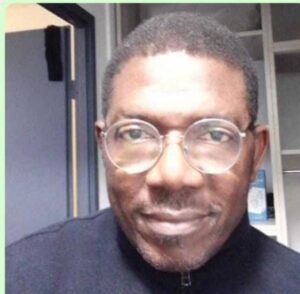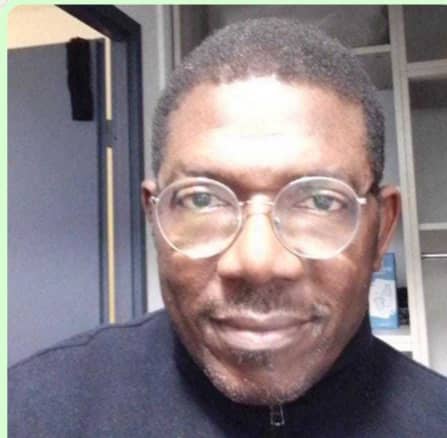“Africa’s Leadership Crisis : Why Quality Governance is the Missing Link to Development” – Joseph Imokhai-Ogunu
Emperor Charlemagne, also known as “Charles the Great” (c. 747-814 CE) was one of the most significant European rulers of the early Middle Ages. As King of the Franks (from 768 CE), and of the Lombards (from 774 CE), he became the first Holy Roman Emperor when he was crowned by Pope Leo III at Saint Peter’s Basilica in Rome on Christmas day, (800 СЕ). Charlemagne holds the exceptional moniker of the “Unifier of Western Europe”; expanding the kingdom of the Franks into a vast empire covering much of present day France, Germany, Belgium, the Netherlands and Luxembourg, northern Italy, and beyond. He is often credited with temporarily reuniting much of Western Europe after the collapse of the Western Roman Empire.
Known as “Protector of Christendom”, he forged close ties with the papacy, defended the Church, and actively promoted the spread of the religion throughout his domain (whether by persuasion or sometimes by force). As the architect of the classical, intellectual and artistic revival (the “Carolingian renaissance”), he championed learning and culture. He established schools; attracting scholars from across Europe, standardized the Latin language, and improved handwriting through Carolingian minuscule-which influenced modern scripts. His coronation as Emperor symbolized the fusion of Roman, Christian, and Germanic traditions and laid the foundation for the Holy Roman Empire. Although his empire fragmented after his death, the idea of a “Holy Roman Empire” shaped European politics for centuries.
He improved governance with written laws (capitularies), appointed royal agents (missi dominici) to oversee local counts, and encouraged standardized coinage to stabilize trade. He thus institutionalized far-reaching legal, administrative and economic reforms as a precursor to future continent-wide legal and administrative reforms. He laid the groundwork for medieval European political structures and intellectual revival, thus earning him the title “Father of Europe”
A grateful continent memorialized Charlemagne’s name all over Europe on streets, boulevards, squares, schools and monuments and even awards. His reputation as the “Father of Europe” meant many countries, even those he never directly ruled, commemorate him. Once briefly canonized, medieval Europe treated him almost like a saint. While in the 20th century, European integration movements embraced him as a unifying figure transcending national rivalries.
Placed along side Peter the Great (1682-1725) and Louis the XIV (1643-1715) from the middle ages to the age of absolutism and enlightenment they formed a historical tripod of truly transformative rulers who reshaped the continent of Europe. Their stories illustrate the enduring truth that leadership-visionary or destructive-shapes nations.
Histories of both heroic and villainous leadership underscore their impacts on the well-being of nations in so consequential a manner, that thoughtful nations place a premium on quality leadership and the selection process. Historical economic data shows that resource-rich nations that lack competent leadership remain stunted in many metrics and parameters of growth and development. And this is the tragedy of most under-developed nations.
Yet, leadership remains the singular, most critical component in the long-term survivability of nations. Examples abound from China to Singapore, Vietnam to Rwanda, Botswana, Mauritius ete, where there is a visible thread showing the symbiosis between effective leadership, economic growth and development and the well being of citizens.
The compelling argument that propels business organizations to seek out and recruit first rates to ensure profits and sustainability of business models, should be more compelling for public service. Without a doubt and it is beyond argument that capacity is determined by competence and bench-marked as a leveraged asset. The irony however, is that in politics, (a profession so vital to the health of every nation), and in many developing countries, the opposite and glaring contradictions appear to be the case.
In Africa, a continent long suffering from a dearth of philosopher kings and brimming with a surfeit of tribal demagogues and religious bigots political leaders remain majorly preoccupied with political conquests, the retention of raw power and tribal contestations. Any wonder why, in the 21 century, and with near universal access to education and technology, a country like Nigeria is credited with a population of about 133 million of its citizens (MPI index 2022), living in a state of multi-dimensional poverty? An incredible feat that beggars belief and speaks volumes to the existence or otherwise of perceptive leadership, its quality and the rigour of its philosophies (if any exists). Quality control in the choice of leaders at all levels of governance becomes a categorical imperative.
A norm by which mere populism becomes the determinant of access to political power and leadership, may not exactly conduce to the needs for quality leadership in developing countries (many of which display intolerance to democratic norms). It underlines some of the causative factors for leadership failure and the perennial inability of some nations to rise up to their full potentials. It is neither the presence nor absence of natural resources, talents or assets, it is the proximate lack of quality leadership. Herein lies the dilemma and contradictions of representative democracy as practised in many climes.
Leadership is critical and the quality of a nation’s political leadership significantly impacts its growth, stability and prosperity. Effective leadership fosters economic growth, promotes stability and security, drives value-added infrastructural development and human capital development. It is characterized by vision, integrity and empathy. On the other hand, poor leadership can lead to a diminution of the quality of lives, economic instability, social unrest, capital flight, brain drain, hunger, starvation, increase in crime rate, political instability and even wars,
One solution in surmounting the crises of political leadership or of quality governance in Africa, is the intentional training and intellectual grooming of political leaders that ensures that they rise through critical cadres of party structures (practised in some jurisdictions such as the U.K. and China) by political parties. This assures the production of a sustainable pool of well-trained politicians and a generation of future leaders (on a party basis), who will execute party manifestos on the basis of party ideology. This perpetuates disciplined professionalism.
If the standard of political leadership must improve, then the threshold must be raised. Quality control measures which produce individuals with a clear understanding of the nexus between qualitative leadership and the developmental needs of their country is a “maxime necessarium”. Unfortunately, many political leaders in under-developed nations are unable to make this connection and thus reflects poorly on the their nations’ standard of living. The current state remains unsustainable and can only lead to further hemorrhage and atrophy.
In the final analysis, Africa’s educated and ruling elite must institutionalize leadership training pipelines within parties, raise thresholds of entry, and prioritize ideology-driven governance. Without this, the continent risks further stagnation. They need to understand the nexus between failing African societies and sub-par leadership. The inability to appreciate this connection is perhaps, the most tragic of their current realities.
(Joseph Imokhai-Ogunu is an attorney and a doctoral research scholar in international trade & economic law at a European University. He is interested in the history of the mediaeval and renaissance age and the growth and development of European, He can be reached at: greyhausconsult)gmail.com & www.linkedin.com/in/joseph-ogunn)



